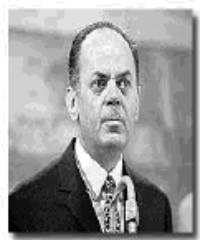
|
George
Papadopoulos
1919-1999 |
1947-1970s, Greece: Helping Fascists in Civil War & Coup
By Jim Huck
Less than a year before V-E Day, British troops entered Greece after the German Army was defeated. This victory was largely a result of the Greek People's Liberation Army (ELAS) which was founded by the Greek Communist Party. Two months after German troops evacuated Greece, clashes broke out between ELAS and British troops. In 1945, the two adversaries signed an armistice, but civil war continued in Greece.
Civil War, 1947-1949
In 1946, Britain looked to the U.S. to fight the leftists in Greece. In 1947, U.S. arms shipments arrived. They built up the rightist Greek war machine with fighters, napalm, small arms and patrol boats. They helped construct air fields, bridges, docks, railways and communication networks. The civil war lasted three years. Finally, in 1949, the leftists announced a cease fire. The neo-fascists won and created a brutal regime. The CIA established the Greek secret police (KYP) whose officers had been trained by the OSS and CIA in the U.S.
U.S. Control, 1950s
In the early 1950s, the U.S. directly influenced the various prime ministers. If the Greek government refused to comply with American demands, the U.S. pressured the prime minister to abdicate by threatening to sever financial aid to the country.
Before George Papandreou was elected prime minister, he acknowledged that the Greek government was compelled to carry out U.S. demands. They "exercised almost dictatorial control during the early 1950s requiring the signature of the chief of the U.S. Economic Mission to appear alongside that of the Greek Minister of Coordination on any important documents."
Papandreou elected, 1964
In February 1964, Papandreou was elected prime minister. Even though he had close ties with the U.S., he refused to accept President Johnson's requests to compromise with Turkey over Cyprus. He even accepted an invitation to visit Moscow and when he was promised foreign aid, the U.S. ambassador demanded an explanation.
Andreas Papandreou, a member of his father's cabinet since 1964, learned that the KYP regularly bugged ministerial meetings and gave the records to the CIA. He replaced KYP members with reliable officers. Andreas leaned to the USSR for support and said that the U.S. had prevented democracy from materializing in Greece. In 1965, John Maury - CIA station chief in Athens - plotted with King Constantine to collapse the Greek government.
CIA-Backed Coup, 1967
The next elections were scheduled for April 1967, but just two days before, George Papadopoulos seized power in a military coup. Papadopoulos had been on the CIA payroll since 1952. He was trained in the U.S. by the OSS and CIA. During World War II, he was a captain in the Nazis' Security Battalion that hunted down Greek resistance fighters. Of the five junta officers, four were connected to either the CIA or the U.S. military in Greece. The military junta decreed martial law followed by censorship, arrests and beatings. In the first month, 8,000 civilians were victims of the oppressive policies. In 1968, Papadopoulos became prime minister.
Testimony to the U.S. House Intelligence Committee, revealed that the junta contributed financially to Richard Nixon's successful 1968 presidential campaign. Vice President Spiro Agnew, who was of Greek descent, angered many Greeks when he visited in 1971, embraced the junta leaders and called them the country's best leaders since Pericles ruled ancient Athens.
In 1969, the European Commission of Human Rights - consisting of 18 European countries - found Greece guilty abusing human rights. The commission refuted the government's claim that it had used oppressive measures because the country was on the verge of a communist takeover.
Another CIA PM, 1973
In November 1973, Papadopoulos was forced out of power in a military shake-up. He was replaced by Colonel Demetrios Ioannidis, commander of the military police, who had been trained in torture and subversive techniques by the CIA. He named a new prime minister, A. Androutsopolous, who had been on the CIA payroll following World War II.
The U.S. government never admitted its support for the Greek military junta until November 1999.
Source: Excerpted from Intelligence Operations since World War II www.angelfire.com/ca3/jphuck/BOOK3Ch3.html
"F**k your Parliament and your Constitution.... If your Prime Minister [Papandreou] gives me talk about democracy, parliaments and constitutions, he, his Parliament and his Constitution may not last very long."
Pres. Lyndon Johnson, said this to Greek Ambassador in U.S., mid-1960s. (from Philip Deane's I Should Have Died, 1977.